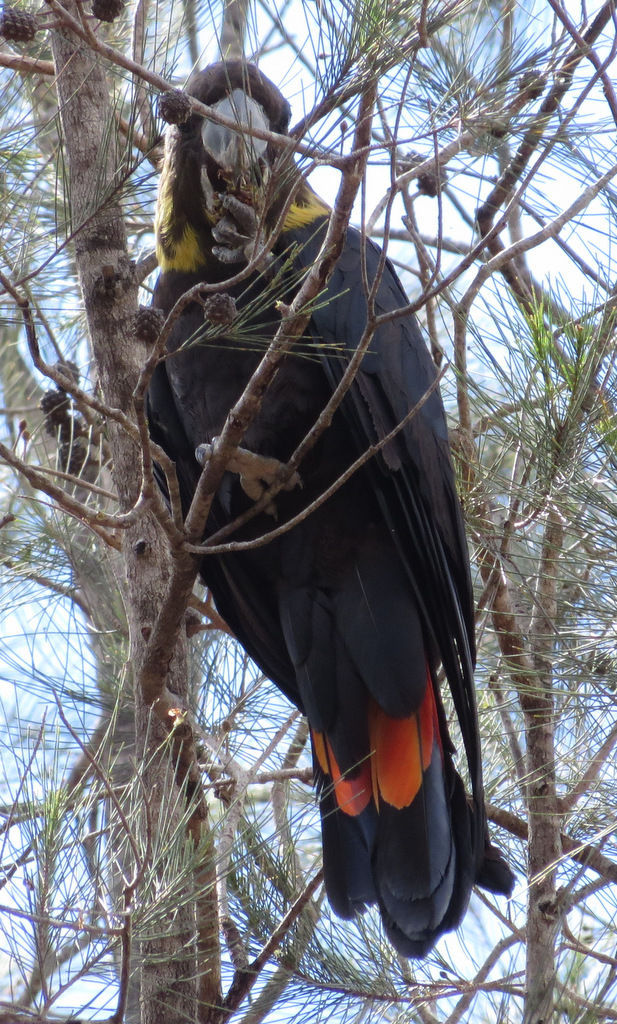Rusty Trees
- Ian
- Jun 14, 2017
- 2 min read
Black She-oak (allocasuarina littoralis)
As the autumn moves into winter, along the roadsides and scattered throughout the bush, splashes of rusty brown appear. The casuarinas are flowering. At times an individual appears so completely brown you could mistake the trees for having died but the vibrant colour reveals it far from dead.
The black she-oak (allocasuarina littoralis) is part of the casuarina family (casuarinaceae) and is one of the first plants to colonise disturbed or cleared land so is common along roadsides in this region. The casuarina family includes several found in this region such as the forest she-oak, similar to the black she-oak and the river oak, the largest of the family and is found along streams.
The black she-oak is a small to medium tree (up to around 15m) is dioecious, producing either male or female flowers on an individual plant, although occasional individuals will produce both male and female flowers on the one plant.
The tree is has pine like needles which are in fact grey green branchlets with tiny leaves or whorls.
The number of whorls can help distinguish between different casuarina species.
The male produces flowers along the ends of the branchlets often producing huge amounts of rusty coloured pollen causing the branches to droop.
The female flower is far less showy, but has the most exquisite tiny red flowers along the heavier branches where the cones containing the seeds will form after fertilisation.
The cones contain seed compartments sealed until the right conditions. They burst open with heat, especially after fire, releasing small winged seeds to find a new spot nearby to shoot when the conditions are right.
The cones are a favoured food of the beautiful graceful glossy black cockatoo. This cockatoo is considered vulnerable due to loss of habitat so these casuarina are vital to their continued survival.

Edit Note: This tree had been identified incorrectly as Forest she-oak (allocasuarina torulosa) corrected 30 April 2018 as Black she-oak (allocasuarina littoralis)


































Comments